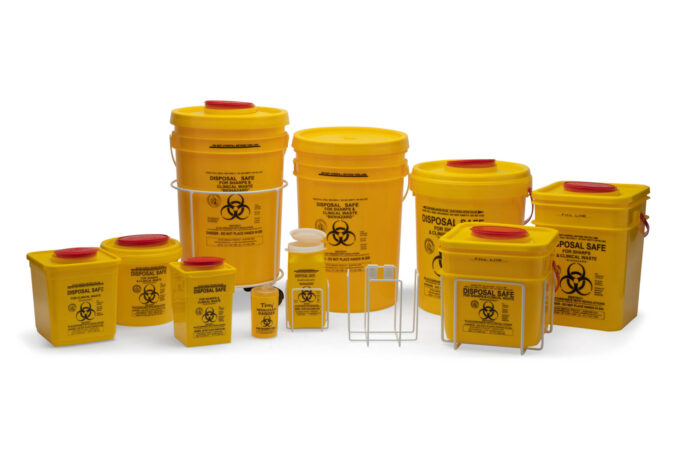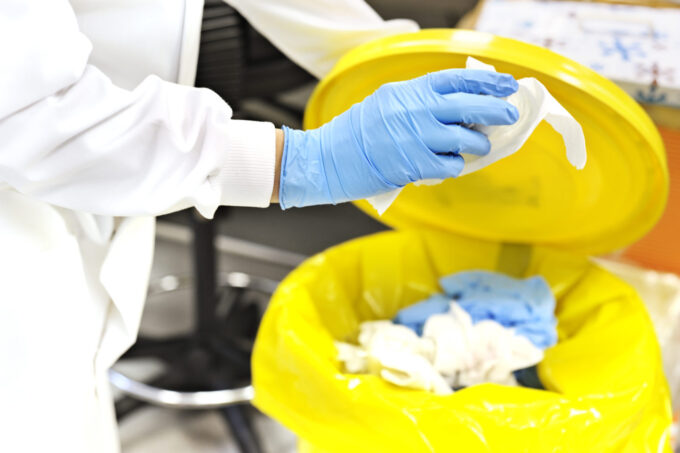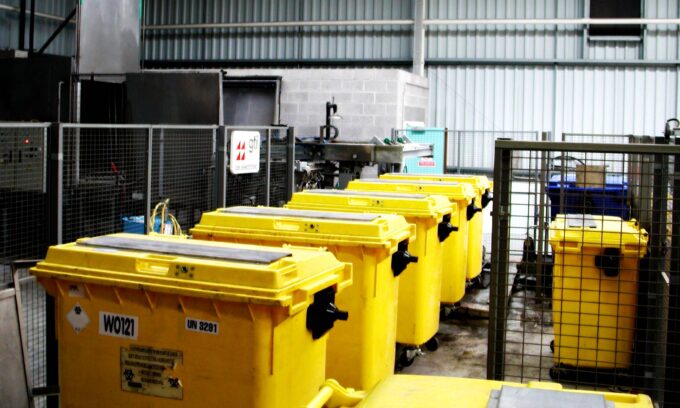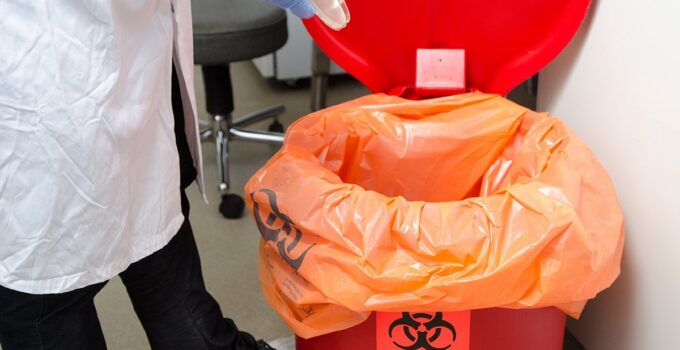Medical waste is a hot topic, and for good reason. It’s one of the most dangerous types of waste and it needs to be handled carefully. Unfortunately, not all medical facilities are handling it responsibly.
There are many reasons why medical waste might end up in the wrong hands. Mistreatment can lead to health risks for patients and the environment, while inadequate safety procedures can contaminate soil and water with hazardous materials. It’s important to know how to identify it and what to do if you suspect it’s been contaminated. This information is critical if you want to minimize the risk of exposure. Have you ever wondered what happens after it’s treated and handled? In fact, according to the World Health Organization, ‘waste should never be generation, storage and use by individuals, communities or businesses.’
Medical waste is any material that has been used or processed in a way that could harm people or the environment. It can include hazardous materials such as chemotherapy drugs and needles, surgical waste, and even disposables used in healthcare settings. It is a major problem because it can contain harmful bacteria and viruses. It can also contaminate water supplies and pollute the soil. If left untreated, it can create serious health risks for anyone who comes into contact with it.
What are medical waste containers?
Containers for medical waste are important for hospitals, clinics, and other healthcare facilities. They help avoid the spread of harmful diseases. But most people don’t understand what they are and how they work. It is a sealed container that can be used to discard medical devices, used needles, bandages, and other materials that may contain infectious bacteria or viruses. These must be disposed of in a specific way to avoid polluting the environment.
By understanding the basics of medical waste containers, you can help protect yourself and the environment from harmful materials. This knowledge will also help you make better decisions when it comes to disposing of hazardous materials. Here are a few important things to know on this subject:
1. They come in a variety of shapes and sizes

Source: idcmedical.com
Hospitals all over the world are struggling to find containers that meet their specific needs. In the US, there are currently only six standardized medical waste containers. This lack of choice has led to chaotic and confusing recycling systems, as well as a severe shortage of available containers.
If you want to help solve this problem, you need to be familiar with the different shapes and sizes. You don’t want to end up investing in one that’s not suitable for your company’s recycling system.
Choosing the right one is important for two reasons. First, it needs to be large enough to hold all of the waste. Second, it needs to be leak-proof and durable.
2. Must be disposed of in an appropriate way
Why is this an important thing to have in mind? Because if you are doing it right, you can avoid environmental and health hazards. Are you familiar with the steps involved in disposing of such waste?
The details of how to properly dispose of it can be confusing, but it’s important to follow a set procedure to avoid potential side effects. Waste management companies offer disposal services for those who want to take care of their health and the environment.
Improper medical waste disposal can cause serious health dangers, including contamination of water supplies, air pollution, and injuries to people working with it. If you want to adhere to waste management rules and protocols, we recommend that you call a company to do it for you. We are here to help you find the right team for these situations, just contact www.medwastemngmt.com and they will take care of the problem for you.
3. Should never be touched

Source: usbioclean.com
Are medical waste containers always a dangerous thing to touch? It sounds like you’ve heard this one before, but the truth is that many misconceptions about them persist. Here’s what you need to know.
Medical waste is any material that has been generated as a result of the practice of medicine, including certificates of health care, x-rays, and blood products. It must be handled carefully to avoid releasing harmful toxins into the environment.
Unless you are specifically instructed to do so, do not touch or handle medical waste in any way. This includes opening the container, touching or even coming within 2 feet of it. Doing so could release harmful contaminants into the air.
4. Should never be opened without relevant authority
They can be difficult to keep clean, but that doesn’t mean you should open them. Opening them could release harmful toxins.
You may think that turning on the waste disposal unit and watching the bags of trash swirl around is enough to clean the container and kill any bacteria. However, this isn’t always true.
To inhibit the growth of bacteria, all medical waste must be properly sanitized before it’s sent to a disposal facility. This involves sterilizing the container and its contents with chemicals or heat. If you don’t do this, you could end up releasing harmful poisons out there.
5. Type of containers

Source: dotless.ae
They are made from a variety of materials, but the most popular are plastic, steel, and tin. Each material has its advantages and disadvantages.
Plastic medical waste containers are the most popular choice because they are lightweight, cheap, and easy to store. They also have a high resistance to the elements and last for a long time. The downside is that they can be difficult to clean and often leak.
Steel medical waste containers are heavier than plastic ones, but they’re more durable. They’re also easier to clean and don’t easily corrode. The main downside is that they’re more expensive than plastic containers and can take longer to break down in a landfill.
Tin medical waste containers are rare, but they have several advantages over other materials. They’re heavy enough to resist vandalism, but not so heavy as to be impossible to move around. They also rust slowly so they aren’t as likely to corrode in the environment. The only downside is that they’re more expensive than other materials and they don’t hold as much waste compared to others.
Through this article, we have presented you with all the things you need to know about how to properly handle medical waste and what type of container is best. Once again we remind you to be extremely careful with it, and to take care of yourself, the people around you, and nature.







